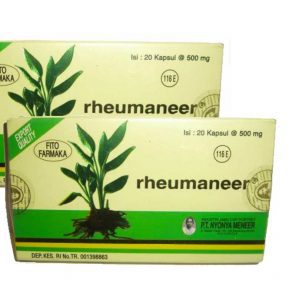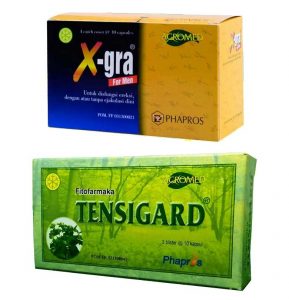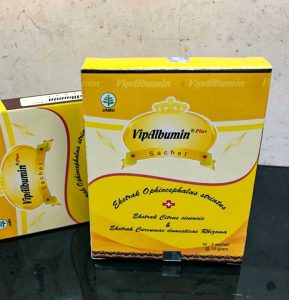Fitofarmaka Understanding Types of Clinically Tested Traditional Medicines
"A fitofarmaka-standardized Herbal medicine means that it has passed preclinical tests and clinical trials. Of the thousands of traditional medicinal ingredients in Indonesia, there are only dozens of brands that have fitofarmaka (phytopharmaceutical) standards"Published by : Farida - 28/03/2022 13:54 WIB
3 Minutes read.
The wealth of natural ingredients in Indonesia makes traditional medicinal products very diverse. Since 2004, the Food and Drug Supervisory Agency (BPOM, Badan Pengawas Obat dan Makanan (), has classified traditional medicines into three categories. The first is Jamu, then Standardized Herbal Medicine (OHT, Obat Herbal Terstandar), and the third is Fitofarmaka (phytopharmaceutical). This time, Jamupedia will discuss it deeply. What are fitofarmaka products like? What brands of traditional medicine have been registered as fitofarmaka?

Sumber: https://www.kaskus.co.id/
In simple terms, fitofarmaka is a classification of traditional medicines whose efficacy has been scientifically proven. It can be said that this phytopharmaceutical is the highest level of traditional medicine which has been certified as fit for circulation and suitable for use by BPOM. Referring to the BPOM decree, Fitofarmaka is a natural medicine whose safety and efficacy have been scientifically proven.
There are two stages of verification, namely preclinical testing in the form of experiments on animals. Then clinical trials in the form of experiments on humans. After that, the raw materials and finished products have also been standardized. In addition, the types of usage claims correspond to medium and high levels of validation.
In more detail, according to BPOM no. 32 of 2019, fitofarmaka medicines must have sediaan (compounds that have been prepared through a chemical process.) that meet the safety and quality requirements for finished drugs. Quoted from the pharmacy.ug.ac.id page, the scope of requirements includes organoleptic, moisture content, microbial contamination, heavy metal contamination, total aflatoxin, weight uniformity, disintegration time, volume transferred, and alcohol content. In addition, to become a phytopharmaceutical standardized traditional medicine, it must meet qualitative and quantitative tests in terms of its raw materials and active ingredients, as well as solvent residues. All testing must be carried out in a standardized or accredited laboratory. In addition, it is also permissible for the internal laboratory of the traditional medicine industry to be recognized by BPOM.
Fitofarmaka Products
Of the many requirements to obtain standardization, of course, not all products and manufacturers are able to pass all the requirements. However, this does not stop jamu entrepreneurs, BPOM, and related ministries from continuing to add to the long list of fitofarmaka products. Published on the Antaranews.com page, in November 2017, at that time in Indonesia there were only 18 names of traditional medicines that passed the fitofarmaka standard.
At that time there were 28 medicines registered at BPOM for fitofarmaka standardization. However, only 18 are considered to have passed. Seven of them were rejected because the clinical data were inconsistent and not credible. The rest is still in the process of being assessed at the time.
The number of fitofarmaka continues to grow, although not significantly. According to the BPOM report in February 2020, there were already 23 fitofarmaka products. About a year later, through its official website, in October 2021, BPOM stated that there were 26 fitofarmaka products.
Quoted from the business.com page, below are some of the fitofarmaka products, including;
- Rheumaneer
This traditional medicine is produced by PT Nyonya Meneer. This traditional medicine consists of turmeric, ginger, temulawak (Java ginger, Curcuma xanthorrhiza), temu kunci (finger root, Boesenbergia pandurate), and cabe jawa (Javanese chili, Piper retrofractum). It is for treating mild to moderate arthralgia joint pain. In addition, it also helps improve blood circulation.

Sumber: https://ida-yanti-pharmacy.blogspot.com/
- Tensigard & X-Gra
The two fitofarmaka products are from PT Phapros. Tensigard is a herbal medicine to treat hypertension/high blood pressure. Its ingredients consist of celery extract and kumis kucing (cat’s whiskers, Orthosiphon aristatus) extract. X-Gra is a supplement for male stamina health. X-Gra consists of ginseng extract, retrofracti fructus extract, royal jelly, ganoderma lucidum extract, and eurycomae radix extract.

Sumber: http://www.mfgtrade.com/
- VipAlbumin Plus
This fitofarmaka herbal medicine is a product of Royal Medicalink Pharmalab. VipAlbumin Plus is a dietary supplement to increase albumin and hemoglobin levels. VipAlbumin is an extract from snakehead fish (Channa striata). VipAlbumin is good for children, pregnant women, and the elderly.

Sumber: https://biggo.id/
Those are some examples of herbal medicine brands that have phytopharmaca standards. If Jamupedia friends have other examples of phytopharmaceutical herbal medicines, please share them in the comment’s column.








